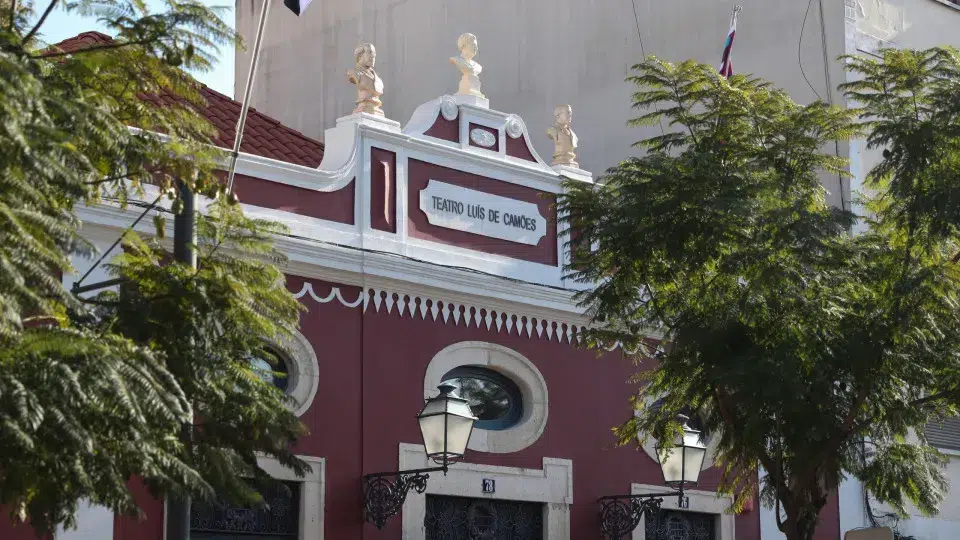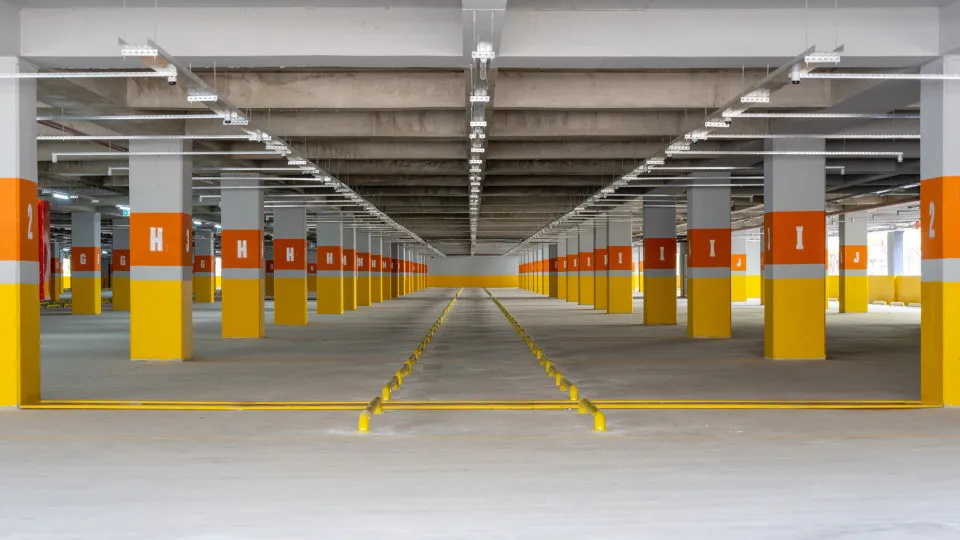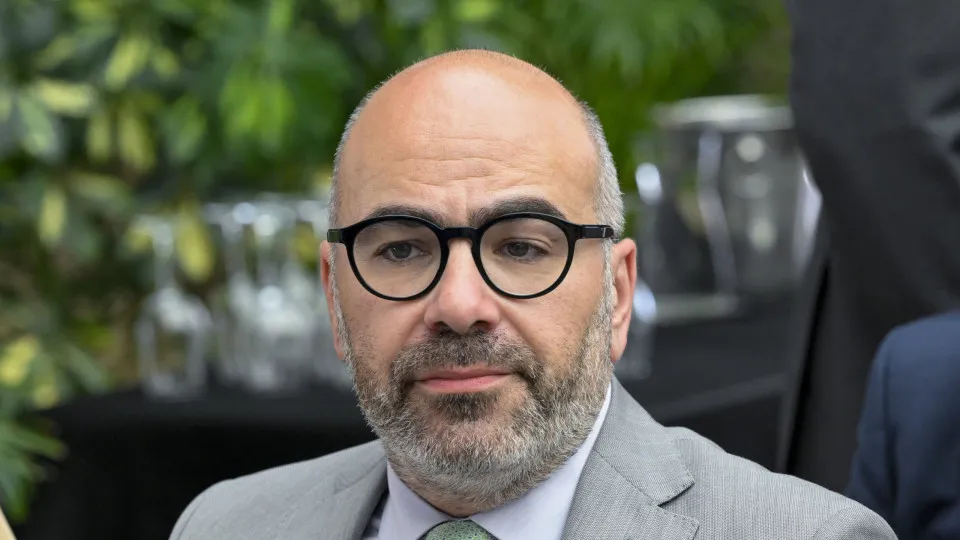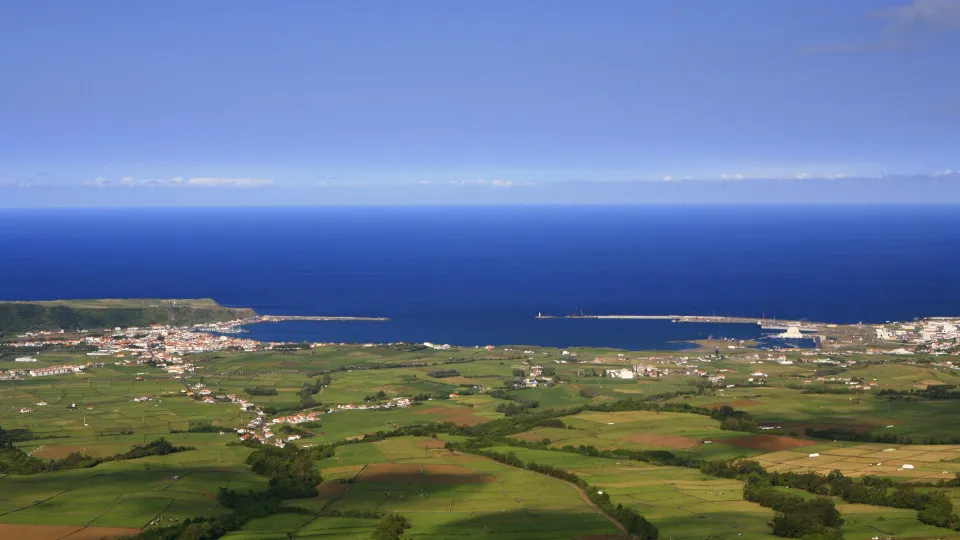During the pandemic, Portugal—and the world—became familiar with Admiral Henrique Gouveia e Melo, a central figure responsible for the successful COVID-19 vaccination campaign in Portugal. His growing popularity ignited speculation about a potential presidential bid, which after some hesitation, became a reality.
In the book “Gouveia e Melo – As Razões,” journalist Valentina Marcelino explores three phases of the admiral’s life: “The Man,” “The Military,” and “The Candidate.” This work outlines his origins, thought processes, and transformation into a political figure as he enters the race for the presidency. The book also addresses his criticism of the Lusa news agency for publishing what he described as a “false and rigor-lacking” report regarding his motivations for abandoning a potential military career for politics.
The deputy director of Diário de Notícias shared insights into the significant interview with the admiral, describing him as “a very pragmatic person who wants to identify solutions,” characterizing him as someone who believes there are solutions to all problems. Marcelino’s book aims to provide the public with informed choices, highlighting some surprising revelations encountered by readers.
From what I’ve seen in the debates, [Gouveia e Melo] differs from the admiral who sat across from me during the interview.
What prompted you to take on this project?
The opportunity arose from an invitation by Porto Editora and editor Henrique Pinto de Mesquita, as I had previously interviewed the admiral for TSF-DN and DN. Covering defense topics, I wished to remain neutral, avoiding any perception of endorsing a candidacy. Weighing pros and cons, the uniqueness of Gouveia e Melo as a political contender led me to accept because it was a chance to profile a new political figure.
I had numerous questions about his views and life—his birth in Mozambique and studies in Brazil—and how these experiences shaped him and his decisions. I viewed it as a valuable journalistic contribution, enriching public information to aid informed decision-making.
Did you notice differences between the admiral you interviewed and the presidential candidate?
Yes, he is distinctly different in debates compared to our interview. Circumstances pressure him differently now. Previously, he was a conversational and detail-oriented individual, leading to a relaxed interview without strict guidelines. Currently, he appears more tense and reserved, perhaps due to the political arena’s demands.
Few have gained such popularity for non-political acts, like saving lives. He was considered a hero, with people often seeking his autograph.
He’s more on the offensive now.
Exactly, the political domain is competitive. He engaged in this arena, possibly believing assertiveness is required. Whether effective or not is debated, but it’s clear he requires time to articulate his ideas.
Regarding the pandemic, why was Gouveia e Melo seen as a potential presidential candidate, unlike Marta Temido or Graça Freitas?
This speculation grew, especially as Portugal’s vaccination success became evident under his oversight. Amidst vulnerability, people saw him—camouflage-clad—as knowledgeable and effective. His popularity soared, prompting discussions of a presidential bid, though the unusual public longing for a hero likely fueled this perception. Historically, few achieved such fame for life-saving achievements.
My observation indicates he didn’t consider candidacy until persistently urged, which sparked contemplation but no decision until September 2024.
Gouveia e Melo accused Lusa of false reporting when discussing his candidacy. What’s your take?
Lusa’s interpretation was legitimate despite lacking direct quotes. The report did not claim his decision stemmed from presidential refusal. Instead, it inferred motives. He clarifies in our interview, expressing disdain for speculation on his alleged government coercion for naval retention. His honor prompted resolution, avoiding implications of coercion-induced government submission. His career shift toward presidential pursuits reflects his rejection of perceived extortion charges, preferring uncertainty over certain advancement within the navy.
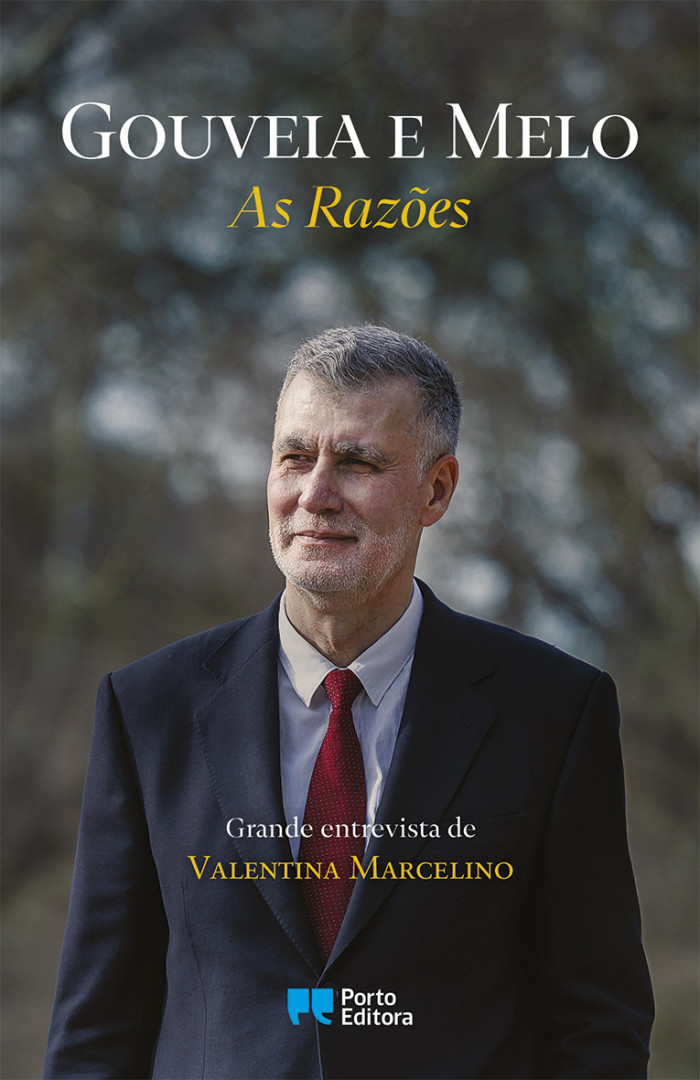
Polling suggests Gouveia e Melo’s popularity is waning. Could this reflect the fading hero myth as he shares his views?
Such shifts are typical with more candidates emerging, diluting votes. Polls derive from party-driven samples, so his non-affiliation might not attract broader support. Voter information on candidates evolves, influencing preferences. Some now judge him less favorably as political views contrast with his heroic image.
Gouveia e Melo claimed he’d win the election outright. Is this confidence or arrogance?
This was recorded around June, coinciding with minor popularity declines, yet he believed in victory. Likely unchanged now, his prediction aligns with typical candidate confidence.
He’s pragmatic, identifying solutions, believing resolvable issues linger unaddressed by existing politicians.
Is there apprehension about an ex-military president, given accusations against Gouveia e Melo?
Despite initial paranoia, such perceptions faded. Transitioning to civil candidacy, he meets constitutional criteria for presidential contention. Military service shouldn’t preclude political aspirations.
His rejection of traditional politics could liken him to antithetical political figures. Does Gouveia e Melo sense a mission to save Portugal?
Focused on pragmatic solutions, he distances himself from extremities, advocating center-grounded governance. His experience in crisis management bolsters his problem-resolution credibility and presidential influence to instigate solutions.
Could his ideas and solutions be applied practically or are they mere platitudes?
Gouveia e Melo earnestly believes in their feasibility. Demonstrated aptitude during the vaccination task force, his proposals aim not at universal fixes but on impactful resolutions. His presidential role emphasizes instigating governmental problem-solving.
He remarked your interview as an in-depth examination. Were there unasked questions?
The interview was comprehensive, covering various topics with timely questions, resulting in a rich 236-page narrative. Despite attempts to update, further inquiries might arise given evolving contexts.
What would you ask now?
I’d delve into constitutional revisions he proposes, an area needing further clarity.
He accepted scrutiny, considering it an opportunity for unmediated, detailed self-expression and addressing public perceptions.
How has the book been received?
Readers report being informed, discovering surprising insights about him, though supplementary biographies also circulate. It positions him among the most scrutinized candidates, providing ample material for future journalistic analysis.
Could extensive scrutiny disadvantage him?
Indeed, scrutiny invites future analyses, potentially discrediting contradictions. Acknowledging this, he values direct expression clarity, seeking constructive engagement with media interpretations.

